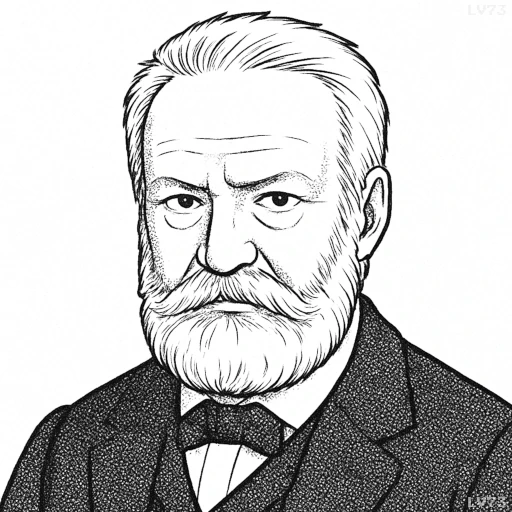“Almost all our desires, when examined, contain something too shameful to reveal.”

- February 26, 1802 – May 22, 1885
- Born in France
- Author, poet, playwright
table of contents
Quote
“Almost all our desires, when examined, contain something too shameful to reveal.”
Explanation
Victor Hugo’s quote suggests that the desires we experience—whether they are material, emotional, or personal—often carry hidden, uncomfortable truths about our inner selves. When we examine our desires more deeply, we may find that they are not always as pure or noble as we would like to believe. These desires might contain elements of selfishness, envy, or greed, feelings that we may be reluctant to admit, even to ourselves. Hugo is pointing to the idea that human nature is complex, and our most innocent-seeming wishes may be tinged with motivations we might not want to confront.
This reflection aligns with Hugo’s Romantic view of human nature, which often portrayed individuals as being at odds with their internal contradictions—the tension between idealism and imperfection. He suggests that, while we may strive for moral and virtuous goals, there is an inherent flaw in human desires that we cannot fully escape. This paradox—desiring good while being drawn to less admirable impulses—speaks to the broader human experience of moral struggle.
In modern terms, this quote encourages self-reflection and an honest examination of our motivations. It suggests that in a world where we often present ourselves in the best light, it is important to confront the complexity of our desires and understand that our inner selves are not always as transparent or idealistic as we may think. The quote serves as a reminder that self-awareness and personal growth often require us to face the less comfortable aspects of our psyche.
Would you like to share your impressions or related stories about this quote in the comments section?

